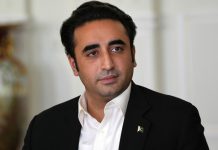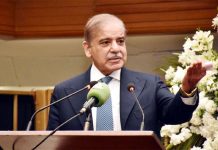ISLAMABAD: Pakistan’s central bank looks set to raise its key policy rate by 125 basis points at its review on Thursday, as it attempts to tackle 13-year high retail inflation, according to the median estimate in a snap poll of 10 economists and market watchers. The economists, analysts and senior professors surveyed were widely split on the quantum of increase by the State Bank of Pakistan (SBP), with views ranging from 50 to 200 basis points. Two respondents did not see a need for a rate increase.
The central bank raised the benchmark interest rate by 150 bps in May, taking the total increase to 400 bps so far this year to counter rising inflation. The South Asian nation is wrestling with economic turmoil, a fall in reserves and a weakening currency.
Data on Friday showed consumer prices in June leapt 21.3% from a year earlier, largely on account of a 90% spike in fuel prices since the end of May after the government scrapped costly fuel subsidies.
With the current policy rate at 13.75% and inflation running well above, real interest rates in the economy have turned sharply negative.
“The last monetary policy committee statement is proof that the State Bank of Pakistan is way behind the curve on anticipating inflation,” said Yousuf Nazar, an economist who writes for various publications and formerly with Citigroup.
“Another hike would increase government debt servicing costs as well as hurt industries. It is not going to have much of an impact on exchange rate or overall demand,” he added.
Most believed a hike was inevitable, given persistently high global energy prices, the abrupt ending of fuel subsidies as well as the need to control demand after SBP said in its last policy statement the economy had rebounded much more strongly than anticipated.
“The overall policy mix is geared towards stabilisation and demand management,” CEO of Macro Economic Insights Sakib Sherani said, adding that this will induce a sharp slowdown in the economy, possibly a recession, in the short run.
But Fahad Rauf, head of research at Ismail Iqbal Securities, said he does not see the need to increase rates further.
“The economy is already slowing down. The layoffs have started and are expected to increase further. Further cost pressures would only enhance the burden on industries and workers,” Rauf said.
“The fiscal arm is working now, tough measures have been taken. SBP needs to wait for the results before further tightening,” he added.
With Pakistan expecting a restart of the much-awaited bailout package from the International Monetary Fund after the country agreed on some tough economic policy adjustments to promote stability, the SBP’s decision is being closely watched. –Agencies




